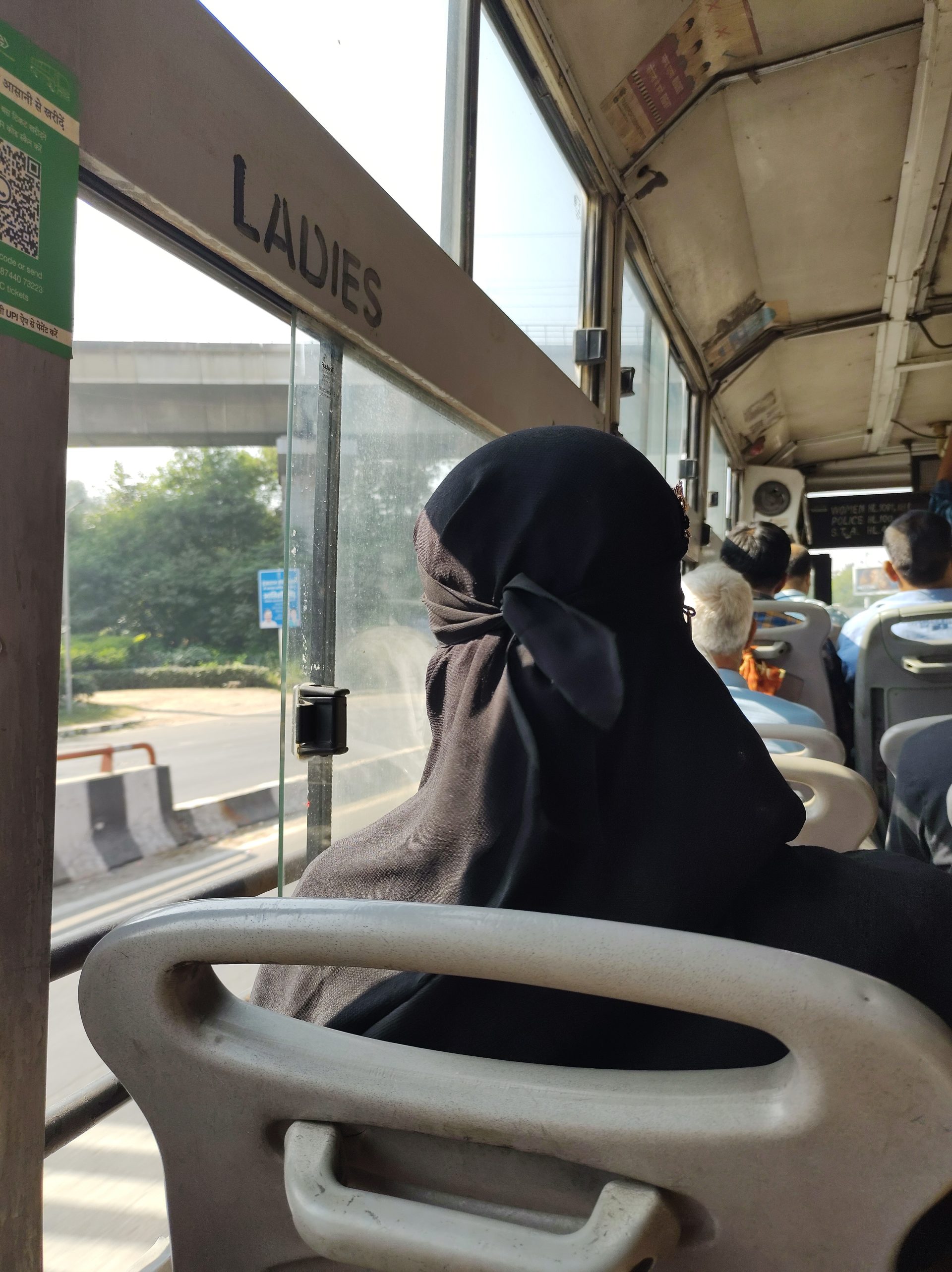By Dakshaa
A right holds little value if it lacks respect and recognition within society. Women travelling on Delhi Transport Corporation (DTC) buses often experience this lack of respect and recognition of their rights from other passengers which undermines their sense of empowerment. Travel plays a crucial role in every individual’s life. It gives a sense of freedom to travel different corners of the world, the same goes for the women of New Delhi.
The Delhi government five years ago made the travel in DTC buses free for women. They are not required to pay for the ticket and are handed over a pink ticket by the conductor as a representation that they are entitled to travel free. The DTC buses not only provide free rides to women but also have reserved seats for them which are either color-coded as pink or marked as reserved for ‘ladies’.
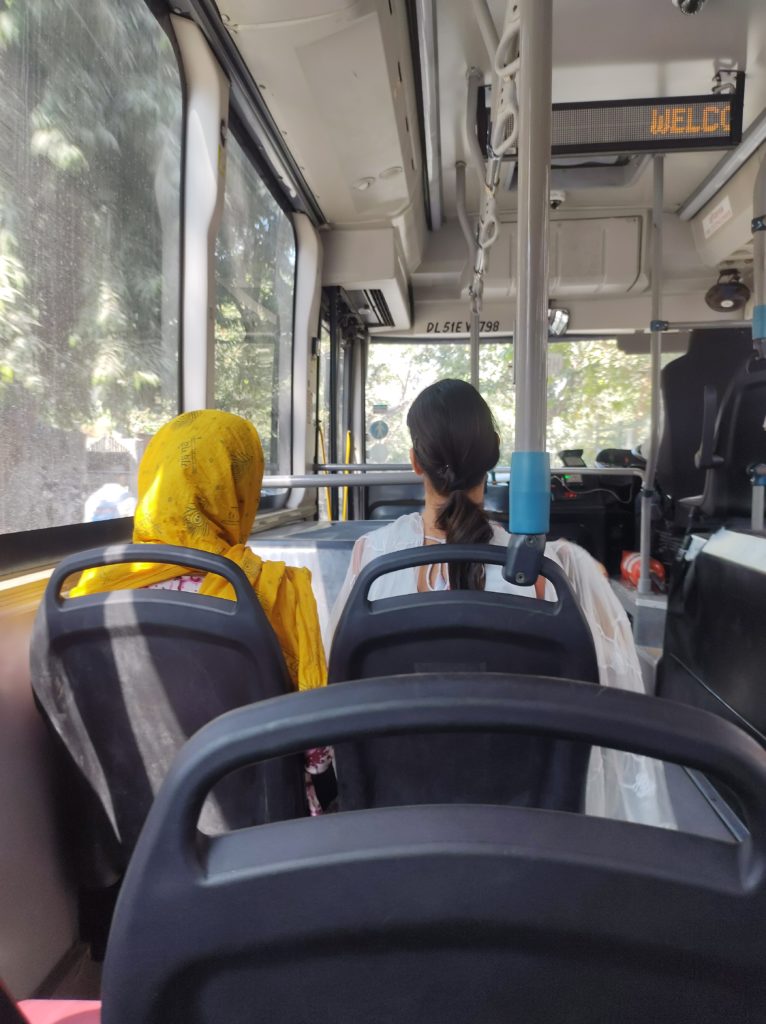
With this initiative the government has done a fairly good job by making travel easier, free of cost and of course, empowering for women. It is empowering, as money no longer acts as a barrier to travel. Women can go wherever they choose, opening up numerous opportunities for them. The freedom to enjoy the ride safely, without any restriction and having significant money saved up to use for herself or for her family is paramount. A report of 2024 by Greenpeace India titled as ‘Riding the Justice Route’, revealed that twenty-five percent of women have increased their bus usage and seventy-five percent of women reported saving on their travel after this scheme.
The objective behind giving these benefits is positive and welcoming, however the reality of the general attitude towards women remains disheartening.
Many women having these entitlements are still unable to enjoy them. They face discrimination and are mocked for using these advantages, which makes their bus journey filled with unpleasant memories. While their travel has become free of cost, it comes at the cost of feeling of shame and feeling like an added burden on the society.
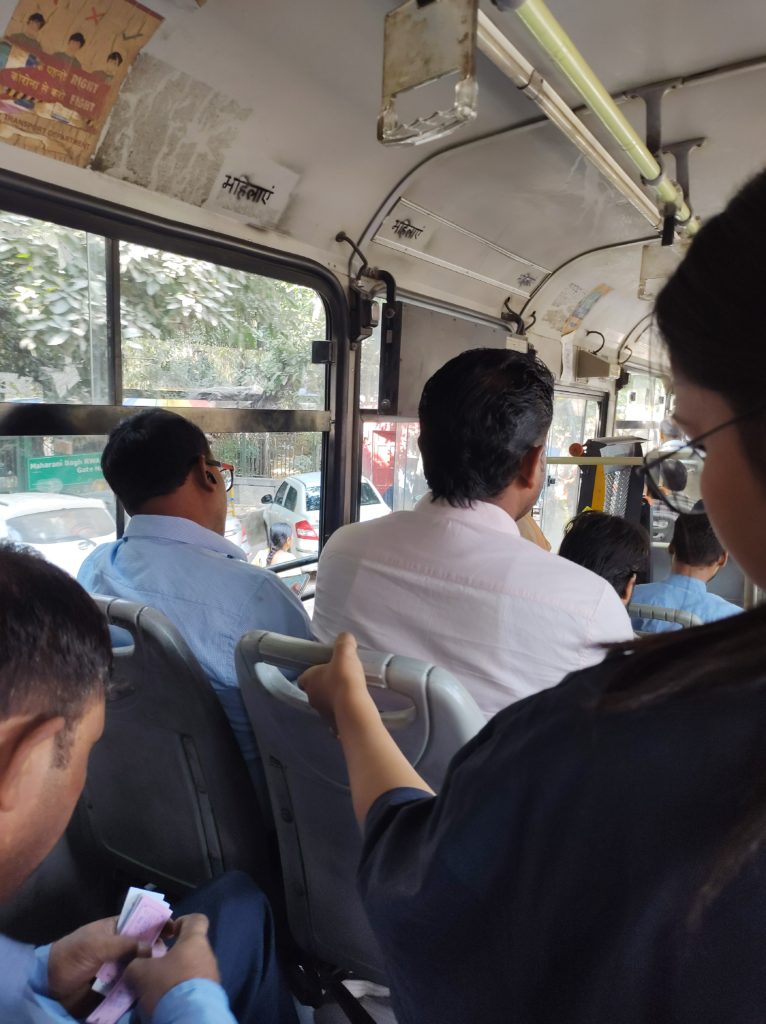
As a woman passenger, I have been traveling in DTC buses for the past four years. The discrimination against women still exists to this day. Various instances on the buses and actions of male passengers and conductors show the mindset they carry towards women on the bus.
Women’s struggle doesn’t begin on the bus, rather it begins at the bus-stand when the driver spots a woman or a group of women waiting. He may choose not to stop the bus and drive straight past them, sometimes even making them run after it which is risky and unsafe. Afterall she is a free-rider so why care? In a group of ticket buyers, a woman will be made to wait to be given her ‘pink ticket’ until all the ticket buyers are given their tickets. After all she is a free-rider so why care? Despite the fact that the task of giving a pink ticket is quite easier than handling payments, counting changes and returning the balance amount.
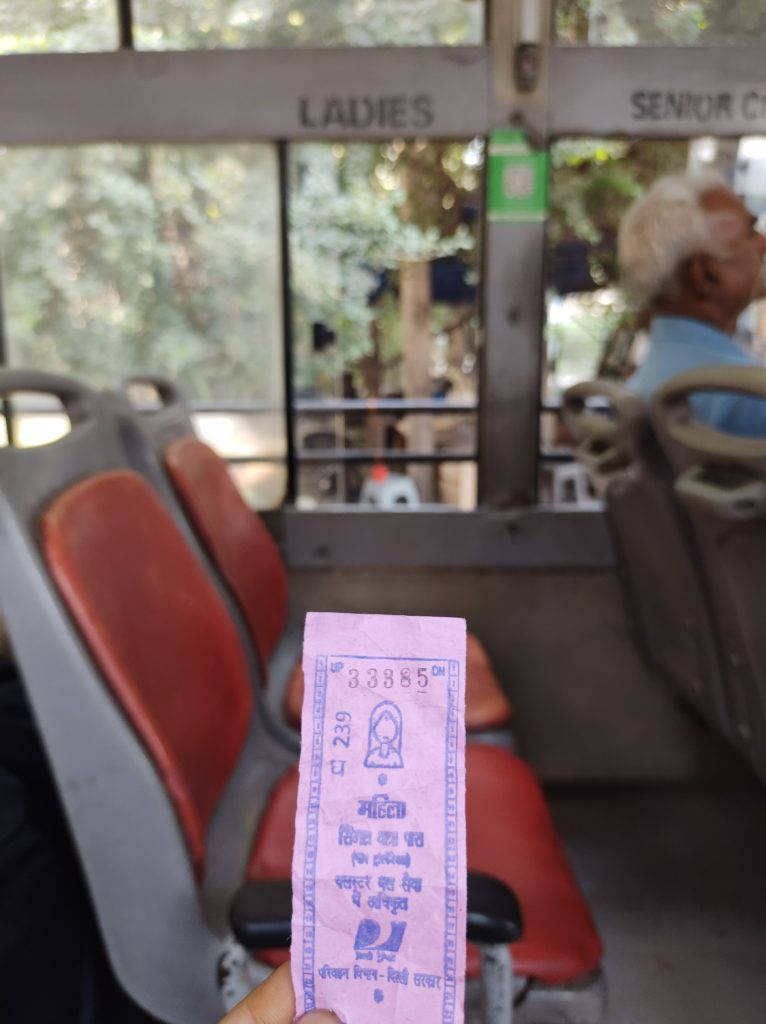
This wait often leaves her standing beside her reserved seat, which is now occupied by a male passenger. A few women are able to ‘ask’ for their reserved seats because they either don’t know about it or feel hesitant to ask for it, sometimes they even face straightforward ‘no’ from the male passenger which often leads to a heated argument between them having comments indirectly or directly pointing at her free-ride on the bus as a burden.
In the year 2023, a survey conducted by Greenpeace India on women bus users in Delhi revealed that 80% of the women complain that buses don’t stop for them at the bus stand after which the Chief Minister took action against those complaints. The survey also reveals that 54.2% of the women face discrimination and comments from male passengers and conductors.
The free bus travel scheme is getting utilised by women to the fullest when it comes to saving money and reaching their destination but the journey in buses could be smoother and memorable if people on the bus start recognising and respecting women’s free-rides by understanding the need for it in the first place.
Many women who travel by bus belong to economically weaker sections who are often frustrated and tired after work. Pregnant women, older women, and teenage girls especially those during their menstrual cycle returning from school, and travelling by bus find it even more challenging when someone occupies their reserved seat. Anger and hostility often appear within them when the reluctance of male passengers to cooperate with them surfaces. This unwillingness to cooperate often deepens frustration and fosters a tense environment which prevents a respectful and harmonious journey for all.
Reserved seats, especially for women in buses and its repeated announcements reminding male passengers to not occupy them, indicates how men till today need to be informed to recognise that the struggles of women differ and they deserve to be treated differently in a positive manner. The quarrels, comments and discrimination on the bus only discourage her from not asking for a seat, deter them from using the bus and undermine their sense of worth. Male passenger’s co-operation and chivalry can only help women to have a better and safer journey where they are made comfortable in realising their rights and advantages provided by the government. In addition, women must be firm and assertive, taking their reserved seats and utilizing the benefits given to them. This will also encourage other women to use public transport more often. To bring change in the society’s stance on gender discrimination – the recognised right or advantages to someone must be respected by society at large so that the person using it doesn’t feel hesitant or unworthy of utilizing it.
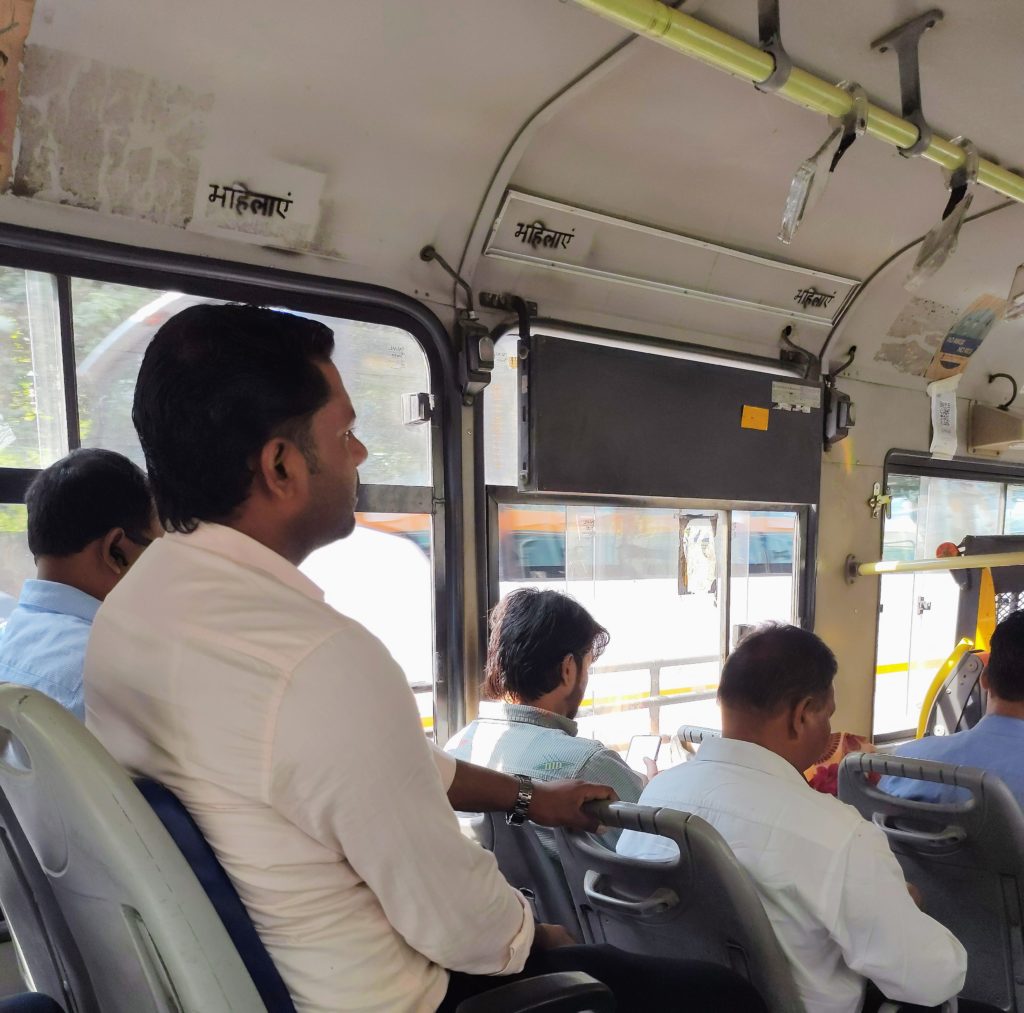
While the government policies may be well intended, if the requisite attempts at behavioural changes are not made, they will be half implemented and never attain their actual intended impact. As for the women, ride on. No one has given us charity – it is our rights that we should proudly proclaim. So next time, don’t hesitate to ask someone to get up from a reserved seat and say – “Bhaiya, my seat! Thank You.”


